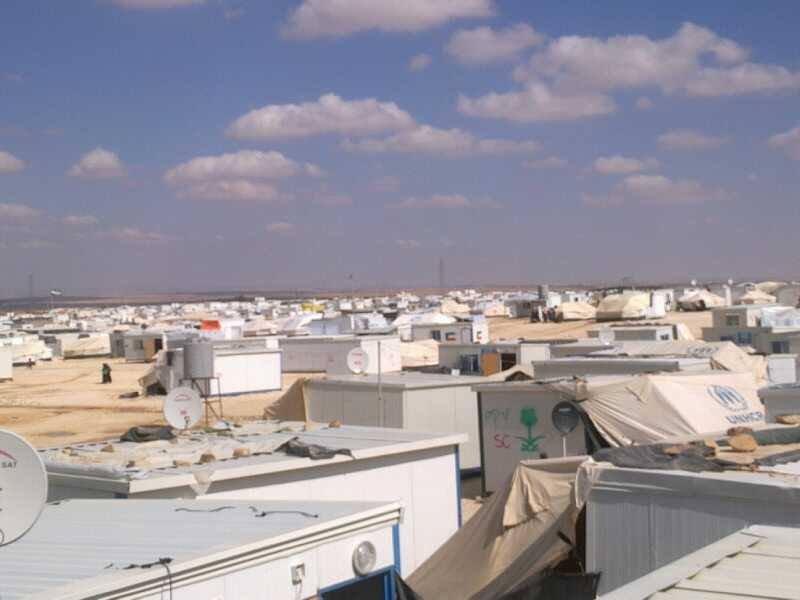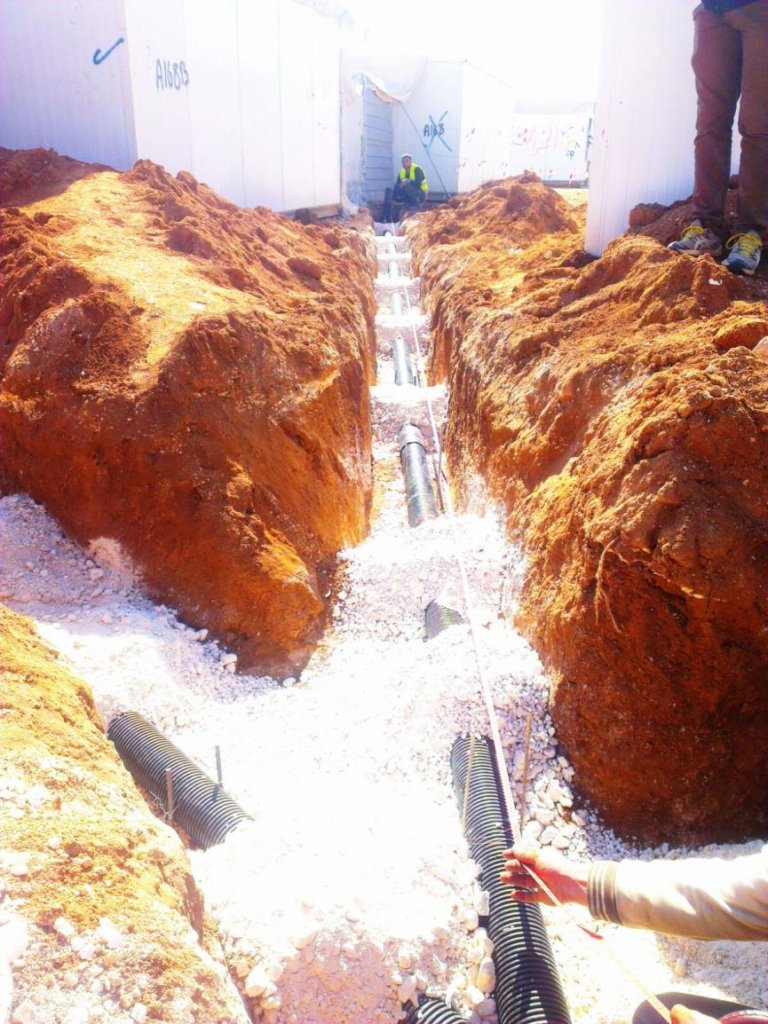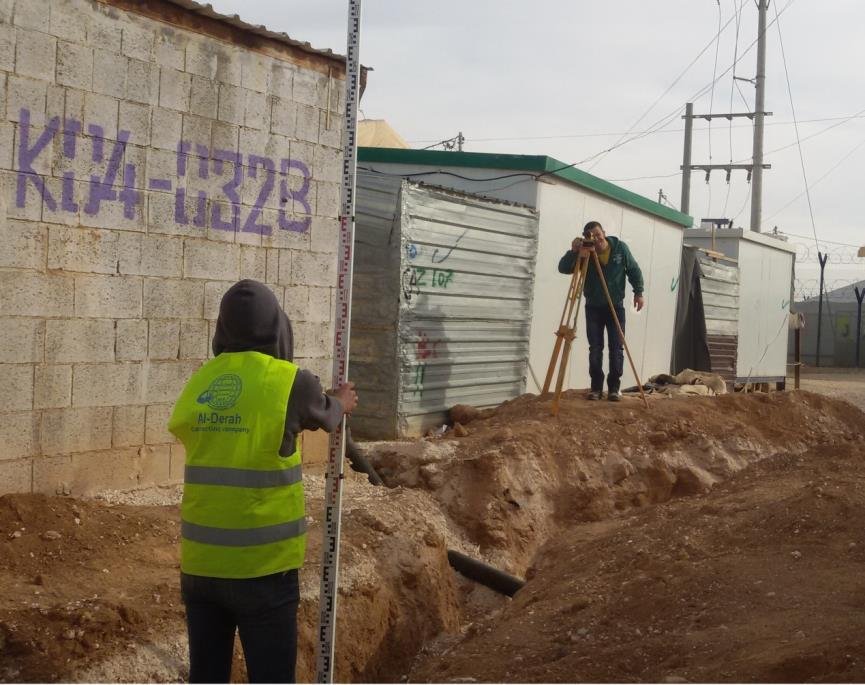By Miyako Hamasaka | PR Manager
JEN has started the establishment of the sewerage network. This project is expected to be completed in 2017.
The project aims to link all the residents to the sewage network that will transfer the wastewater to the treatment plant inside the camp. It provides a great service to help get rid of all types of wastewater (gray and black) and maintain the groundwater environment in the governorate of Mafraq (Jordan).
Project Description
The project consists of two phases:
- First, use HDPE (High-Density Polyethylene) pipelines to connect the caravans to the concrete tanks that collect solid waste;
- Second, connect the concrete tanks to the treatment plant in the camp.
Implementation of this project involves a lot of challenges, which make the process extremely difficult. Some detailed examples are as follows.
1. Public safety
Public safety is one of the major challenges and concerns. To ensure that safety requirements are well met, several measures are taken such as using warning tapes and metal barriers.
In addition, we also conducted extensive education for parents about the potential danger involved with children playing near the construction sites. Those are important measures to raise the awareness among community members, especially children, to stay away from machineries and construction sites.
2. Randomly distributed caravans
Since the refugees and caravans are scattered in the region, our work becomes unusually hard.
To overcome this problem, we have planned several field inspections ahead to collect data from the project site on a daily basis, after which we drafted designs and instructions accordingly.
3. Damages and losses of resources
When the project staffs leave the field, they make sure to secure the site and keep all materials and machineries in safe places.
However, the losses of some equipment and construction materials are still unavoidable. Therefore, it requires extra precautions during the project in order to minimize the losses. This could be achieved through hiring local security guards, whom live in the same area where the project construction sites are located.
4. The continuous migration of refugees
Some refugees keep moving from one place to another in order to live together with their relatives or get access to better services.
Despite the continuous migration, we are trying to organize refugees into living blocks and convince them that the infrastructure projects, such as wastewater network, are making great progress.
JEN also provides the guidelines for engineering project such as roads, buildings, water and wastewater projects.
Our task is one of the many important factors to make the project successful. It facilitates the installation of the pipes in fixed positions and slopes to prevent blockage in the network.
After the project is completed, most problems related to the sewage disposal suffered by Syrian refugees in Za’atari camp are expected to be resolved. It will also help protect the groundwater in the aquifer under Mafraq Governorate (Jordan) from potential contamination.
Project reports on GlobalGiving are posted directly to globalgiving.org by Project Leaders as they are completed, generally every 3-4 months. To protect the integrity of these documents, GlobalGiving does not alter them; therefore you may find some language or formatting issues.
If you donate to this project or have donated to this project, you can receive an email when this project posts a report. You can also subscribe for reports without donating.


